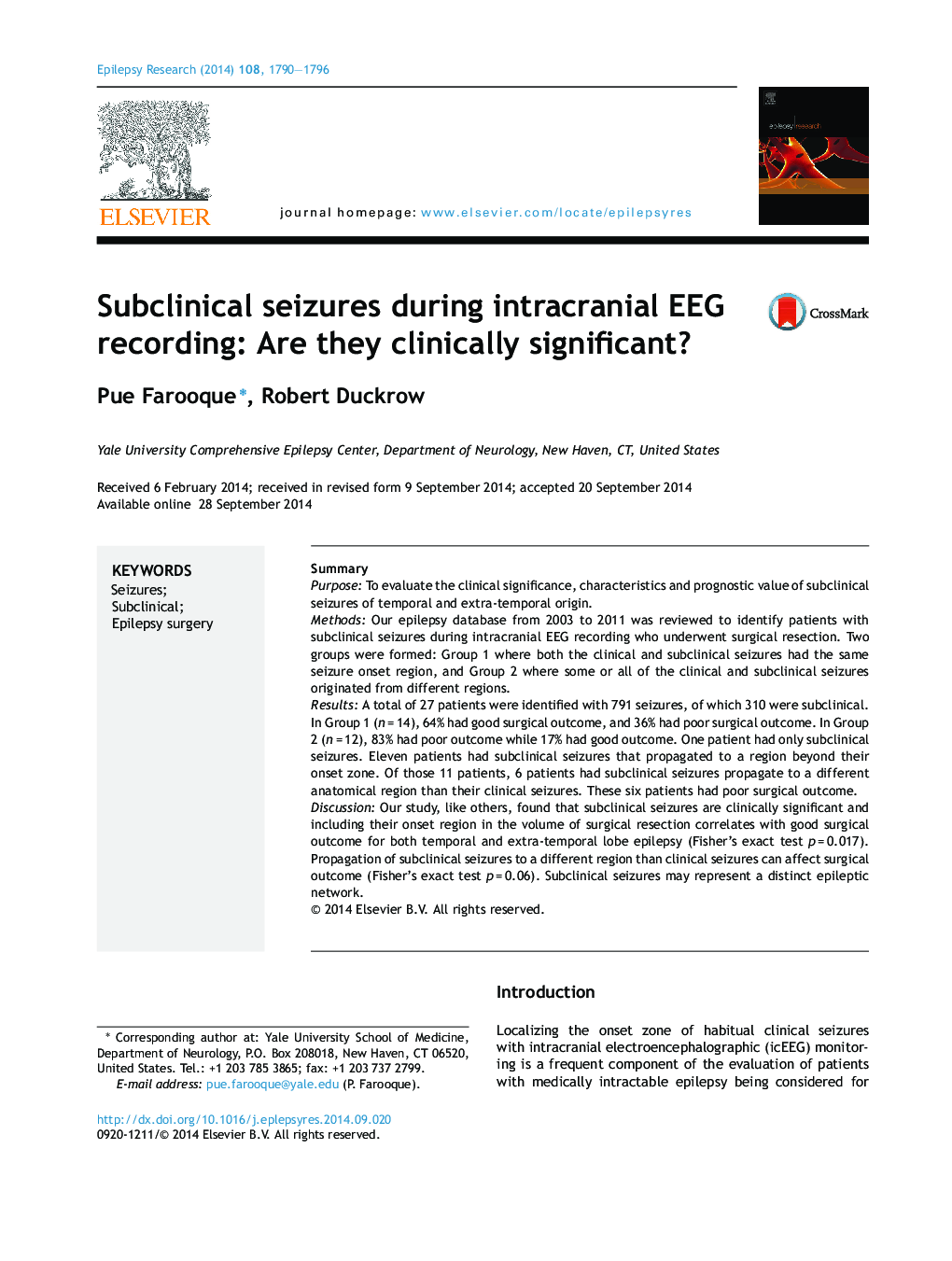| Article ID | Journal | Published Year | Pages | File Type |
|---|---|---|---|---|
| 6015511 | Epilepsy Research | 2014 | 7 Pages |
â¢We studied the impact of subclinical seizures on epilepsy surgery outcome and found that the character of subclinical seizures correlated with surgical outcome.â¢Propagation patterns of subclinical seizures may relate to their potential impact on outcome.â¢Distinct subclinical seizures may signify an additional underlying epileptic network.
SummaryPurposeTo evaluate the clinical significance, characteristics and prognostic value of subclinical seizures of temporal and extra-temporal origin.MethodsOur epilepsy database from 2003 to 2011 was reviewed to identify patients with subclinical seizures during intracranial EEG recording who underwent surgical resection. Two groups were formed: Group 1 where both the clinical and subclinical seizures had the same seizure onset region, and Group 2 where some or all of the clinical and subclinical seizures originated from different regions.ResultsA total of 27 patients were identified with 791 seizures, of which 310 were subclinical. In Group 1 (n = 14), 64% had good surgical outcome, and 36% had poor surgical outcome. In Group 2 (n = 12), 83% had poor outcome while 17% had good outcome. One patient had only subclinical seizures. Eleven patients had subclinical seizures that propagated to a region beyond their onset zone. Of those 11 patients, 6 patients had subclinical seizures propagate to a different anatomical region than their clinical seizures. These six patients had poor surgical outcome.DiscussionOur study, like others, found that subclinical seizures are clinically significant and including their onset region in the volume of surgical resection correlates with good surgical outcome for both temporal and extra-temporal lobe epilepsy (Fisher's exact test p = 0.017). Propagation of subclinical seizures to a different region than clinical seizures can affect surgical outcome (Fisher's exact test p = 0.06). Subclinical seizures may represent a distinct epileptic network.
